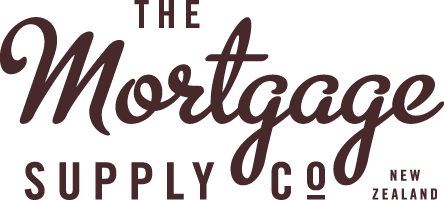
Buying a first home is a big life step for many Kiwis and for a lot of young, prospective property buyers they're simply not sure where to begin. From credit checks, to pre-approvals and LIM reports, it's tough to know if you're ticking all of the boxes and setting yourself up for a smooth sailing purchase.
We've put together a New Zealand first home buyers checklist to simplify the complex process, and make it easy to know whether or not you're on the right track.
Congratulations on taking the very first step - the research!
1. Map out an accurate budget
Before you take your finances to the bank and begin the pre-approval process, it's important to get an idea in your head of where you sit with your monthly income and expenses. This will give you an accurate reflection of whether you'd be able to add mortgage repayments, rates and home maintenance to your list of ongoing expenses.
Print out your last three months worth of bank statements (this should give you a realistic representation of your spending habits) and note you income after tax. Then, subtract your regular expenses like bills, credit cards, loans, groceries and petrol from your income, and what you have leftover is your money for monthly mortgage payments. You may find there's room to trim down your budget, but at this stage it's most important to be accurate and realistic about your spending.

2. Financing and pre-approval
This is the step that will determine what price range of houses you'll be able to look at, and can be broken down into a few individual steps:
- Get together your deposit.
Depending on the lender you decide to go with, you'll be required to pay a deposit that's a percentage of the house sale price upfront. Usually this sits at around 20%. That's a lot of money to get together, but through saving, Government schemes such as KiwiSaver and First Home Grants, or even family equity you may be able to reach the 20% deposit mark easier than anticipated.
- Research your lender.
Next, it's time to put in the legwork to find out which lenders will provide the best deal to match your circumstances. Perhaps you have a high deposit and are looking for a lender who can service this with a lower interest rate in-turn, or perhaps you need someone a little more flexible to account for your circumstances. Whatever the case, do the research before you apply. If you're not sure where to start, we'd be happy to help - just fill out out 'how much you can borrow form' below!
- Apply for pre-approval.
Once you've researched your options for lenders, you're ready to apply for pre-approval. At this stage, the selected lenders will go through your credit history, expenses and income with a fine-tooth comb, to establish how much they'd be comfortable to lend you. Once they've made a decision, they'll quote you a number they're happy to finance.

3. House hunting
Once you're pre-approved, you're ready to hit the streets and attend open homes. Write down a list of priorities that are important to you when searching for a home, and note the things that you're not willing to compromise on. It might be location, a number of bedrooms or the type of property (apartment, home, lifestyle block).
While you're house hunting, it's also key to make sure you're asking the right questions of real estate agents. They're there to sell you a property, so it's likely that if you don't probe deep enough you might miss an important flaw in the property that could cost you later.
We'd suggest asking:
- how long has the property been on the market for?
- how much have nearby properties sold for?
- have any alterations been made?
- are there any zoning restrictions?
- where are the property boundaries?

4. Check the property
Just because the house you're interested in has been recently re-carpeted and has had a new kitchen installed, doesn't mean that it's necessarily in great condition. There are a few steps to take before you make an offer to check that the property is structurally sound, because once you go unconditional there's no going back.
The Ministry of Building NZ has put together a comprehensive checklist for first home buyers to refer to, but the gist of it is this:
- Obtain a professional builder's report
- If the house is a shared space like a unit, ask for the body corporate's regulation that manage the building
- LIM report (Land Information Memorandum)

5. Making an offer
You've found your dream property, it's structurally sound and you want to lock it in - now it's time to play your cards right and make an offer. Depending on the type of sale, the way that you make your offer will differ slightly.
- via Tender
This is a blind auction where everyone who is interested in the property will submit an offer before a selected due date. The house won't be advertised at a selling prize, so you wont know how much the seller is expecting, or have an idea of the offers that other prospective buyers are offering. You can make your offer via. the seller's real estate agent.
- Buying at Auction
You've probably seen this play out on TV shows, and already know that this is a fast-paced, spur of the moment way to purchase a house. You'll be surrounded by other interested buyers who are making competitive offers. The important thing to note is that a winning bid is considered an unconditional offer on the property, so it's important to know for sure what you can afford and to factor every cost into your bid.
- Fixed-Price
This is when a seller lists a property at a fixed price they're happy to sell at. Everything is above board - you know how much they're expecting, and you're welcome to pay it if you feel it's fair. However, you're also welcome to test the waters with a lower offer and see what feedback you get from the seller - at the risk of someone paying the asking price before you.
More information on making an offer, here.

6. Going unconditional
Put simply, going unconditional means that your offer has been accepted by the seller, all conditions set by the seller and the buyer have been met, deposits have been made and confirmed by the real estate agency and the buyer is locked-in to paying the full amount on a set due date.
In order to get all of your ducks in a row and handle this transition, we'd recommend engaging a property solicitor who can help you through the process and negotiate on your behalf.

7. Settlement Day
Usually, this is the same day that you get the keys! Once settlement (payment of full sum) has been made and confirmed in writing and a change of ownership has been registered with the Land Transfer office, you're officially the owner of you're very first home. The keys will be handed over, and you're welcome to move in.

8. After-purchase protection
For a lot of first-home buyers, the excitement of finally confirming that they're the owner of a property can override the importance of protecting that property. In fact, some banks actually require an agreed home insurance plan in place before they'll even lend money. This is a good time to visit an insurance broker and negotiate a deal for home and contents insurance, just in case the unpredictable occurs.

Still feeling a little unsure about the process and steps you need to take to purchase your first home in NZ? No worries. Get in touch with our friendly team today, and we'll take you through every step of the process.











